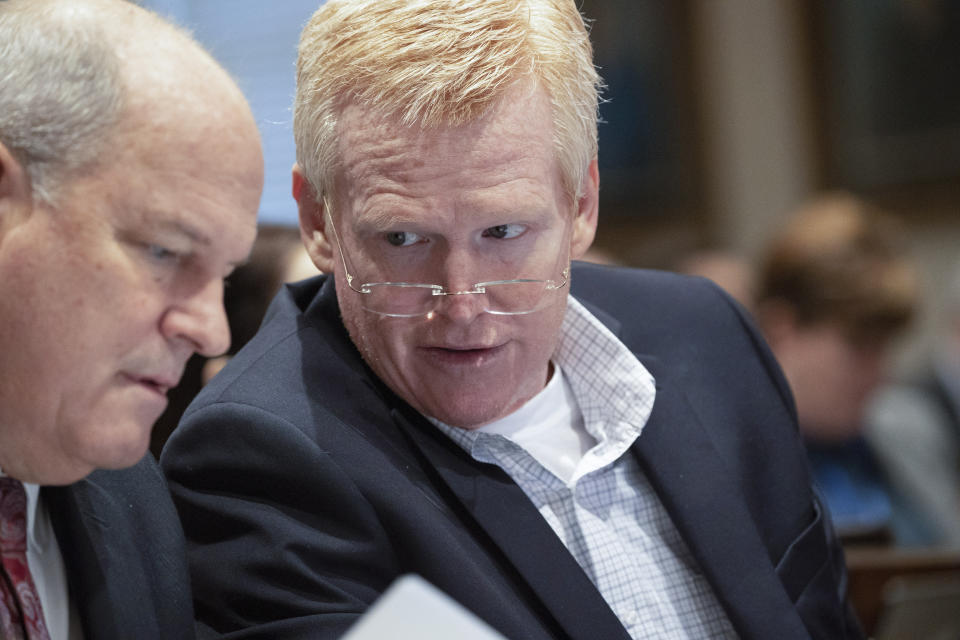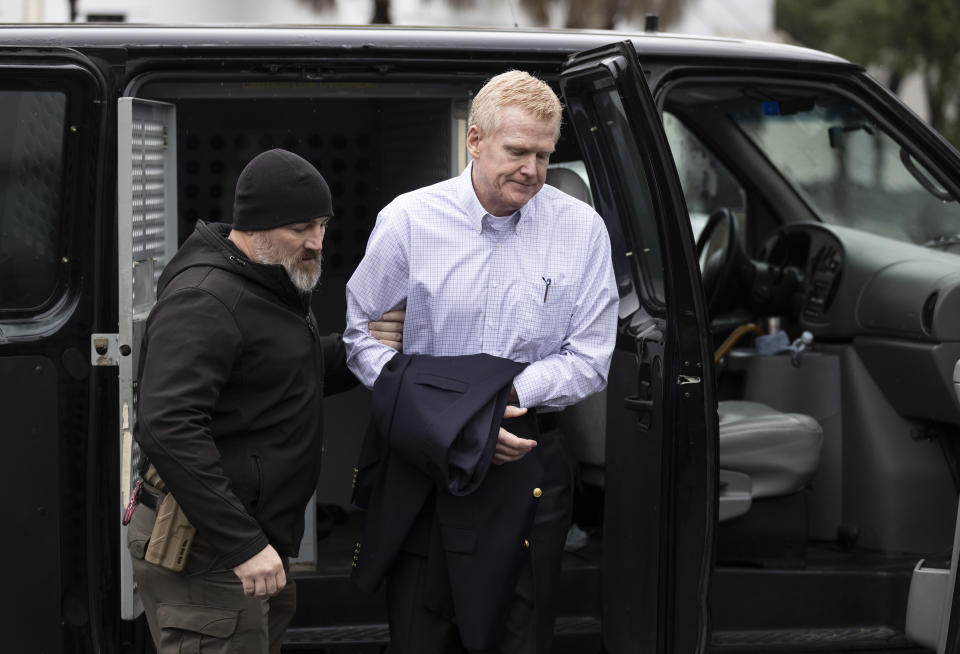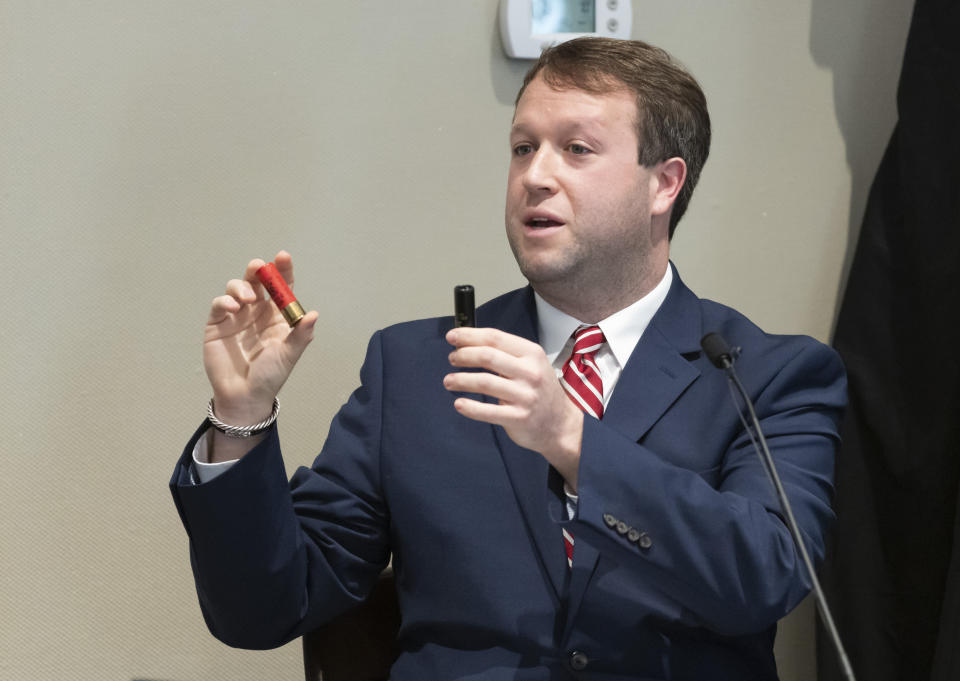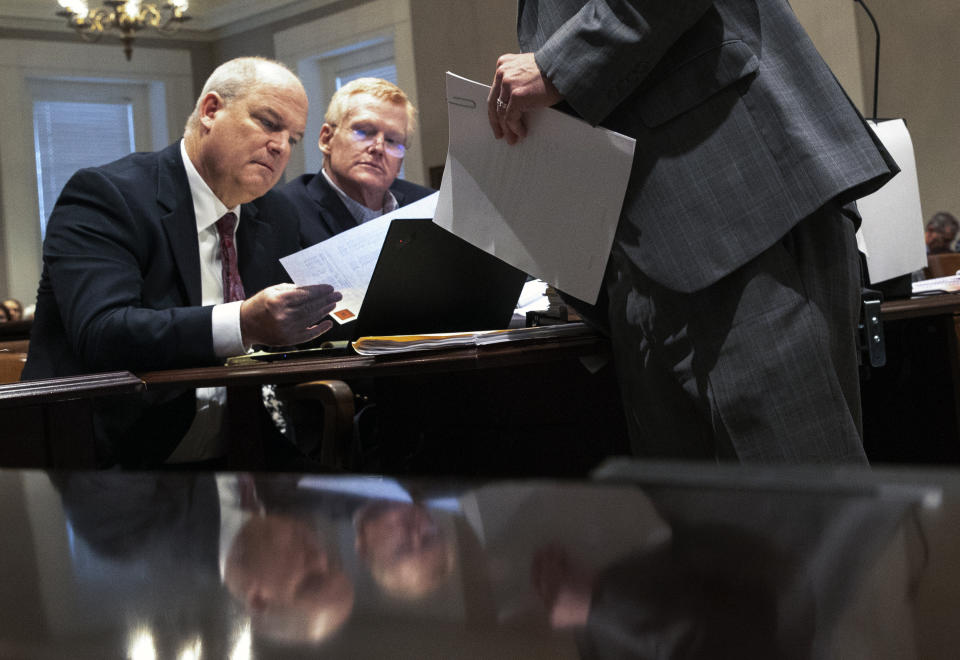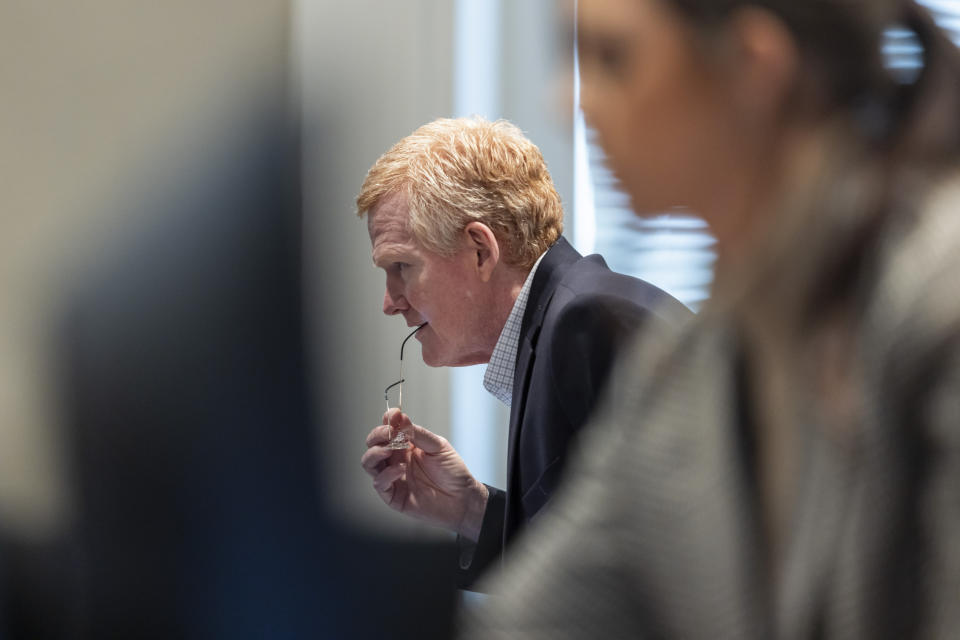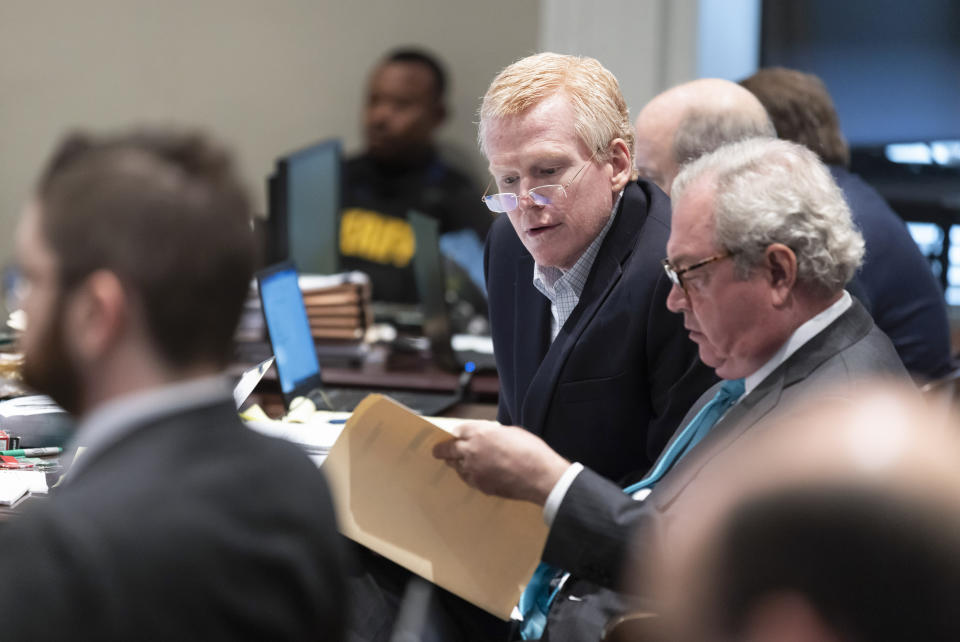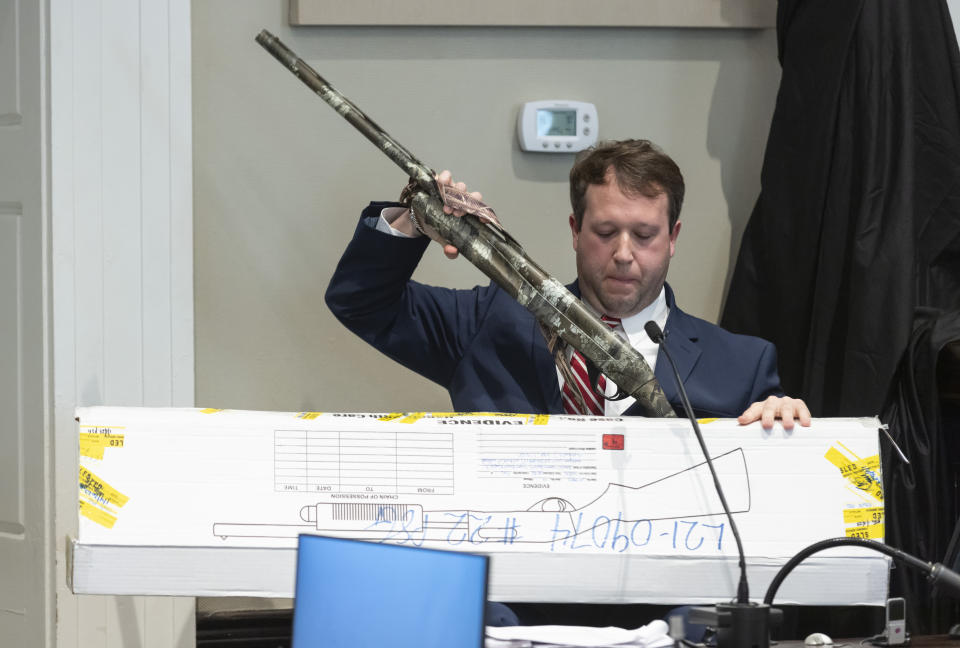How the cases in Alex Murdaugh's murder trial are shaping up
Two weeks into the double murder trial of South Carolina attorney Alex Murdaugh, prosecutors haven't presented any direct evidence that he killed his wife and son at their home in June 2021.
There is no confession, no surveillance camera footage, no recording of the victims' final moments.
If found guilty of murdering his wife, Maggie, 52, and their son, Paul, 22, Murdaugh faces 30 years to life in prison without parole. The disgraced lawyer, who also faces about 100 other charges ranging from stealing money from clients to insurance fraud, has adamantly denied fatally shooting his wife and son.
Murdaugh's lawyers said he was visiting his ailing mother on the night of the murders and police wrongly focused on him from the start, ignoring the possibility that anyone else killed them.
HOW ARE PROSECUTORS MAKING THEIR CASE?
Prosecutors are trying to build a mountain of circumstantial evidence so high it removes any reasonable doubt with jurors that Murdaugh is guilty.
In seven days of testimony, prosecutors have presented crime scene photographs, guns collected from Murdaugh's home, cellphone data and a video of Murdaugh wearing different clothes less than three hours before the time that he said he discovered the bodies at their Colleton County home.
They've also shown a video the son took five minutes before the victims suddenly stopped using their cellphones in which family friends say they can hear the voices of all three Murdaughs. Alex Murdaugh told investigators early in the case that he wasn't there.
They contend Murdaugh shot the two to distract attention from his other crimes, for which he is awaiting trial.
HOW IMPORTANT IS THE CRIME SCENE EVIDENCE?
The evidence at the scene is key to unraveling what happened before Maggie and Paul Murdaugh were found shot with at least one bullet to the head by two different guns.
State agents drove two hours from Columbia to swarm the Murdaugh home the night of the killings, taking photos of blood spots, shoe prints and weapons casings. They collected guns, tested Murdaugh's hands for gunshot residue and took DNA swabs.
“The crime scene is kind of a temporary thing. Once the crime scene has processed, you can't go back to it. So … you really try to cover absolutely everything while you’re there,” said Kenneth Moses, a forensic scientist who led the crime scene investigations unit at the San Francisco Police Department and now works as a consultant, mostly for criminal defendants.
But there were things that weren't done. In cross-examination, agents have said they didn't test shower and sink drains for blood. They did not search the home of Murdaugh's mother for months even though that's where he was before he said he found the bodies. And they didn't preserve tire tracks.
Defense lawyers are looking for a mistake, or potential mistake, that will resonate with a jury, Moses said.
It's “different than police, who don’t care about juries at all. They’re looking to make an arrest,” Moses said.
WHAT ABOUT CELLPHONE EVIDENCE?
Murdaugh wasn't charged with murder until 13 months after the killings. Through testimony, finally getting data from Paul Murdaugh’s phone appears to be a key development around that time.
Agents testified they couldn't pull off the data off Paul Murdaugh's phone until advances in technology got past the security features Apple puts on iPhones.
The phone contained a 50-second video Paul Murdaugh took about 8:45 p.m. near the dog kennels were both bodies were found. His friends testified they heard all three Murdaughs' voices. Alex Murdaugh told police at least twice he was not at the kennels that night.
But cellphone evidence appears to have helped the defense, too.
Alex Murdaugh turned his cellphone over to investigators and evidence has it at his SUV still parked at the house at the same time his wife's cellphone was being thrown on the side of the road a half-mile (800 meters) from the property, defense lawyers said.
WHO IS ALEX MURDAUGH?
Both sides are trying to get their version of Murdaugh, who comes from a family that's well-known in local judicial circles, before the jury.
The defense wants to portray a loving family man and has asked any witness who knew the Murdaughs about their relationships. All have said Murdaugh and his wife appeared happy together and Alex Murdaugh was a doting father.
Prosecutors are trying to show an attorney living a double life who was so scared it would be discovered he stole millions of dollars that he committed the killings to try to buy time to cover up his other crimes. They asked every officer who encountered Murdaugh after he found the bodies of his wife or son if he was crying and all said he seems upset and distraught, but with no tears.
WHAT DOES THE DEFENSE SAY?
Defense lawyer Dick Harpootlian contends prosecutors incorrectly locked in on Murdaugh’s guilt from the start and have tried to jam bits of evidence that can be explained away or leave an incomplete picture into a story that frames the wrong man.
“There’s no direct evidence. There’s no eyewitnesses. There’s nothing on camera. There’s no fingerprints. There’s no forensics tying him to the crime. None,” Harpootlian said.
___
Maryclaire Dale in Philadelphia contributed to this report.
___
For more stories about the Alex Murdaugh trial, visit: https://apnews.com/hub/alex-murdaugh

